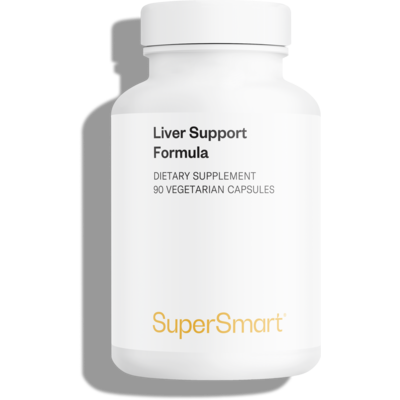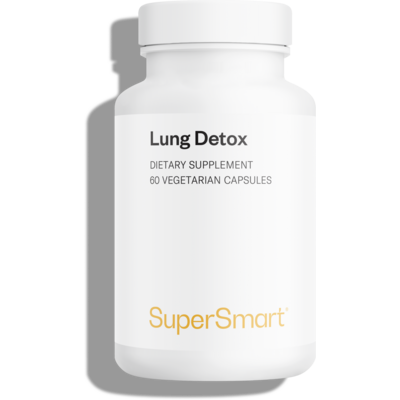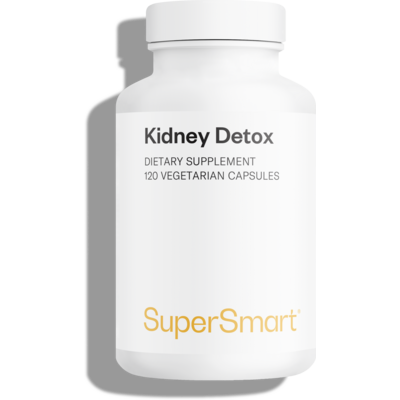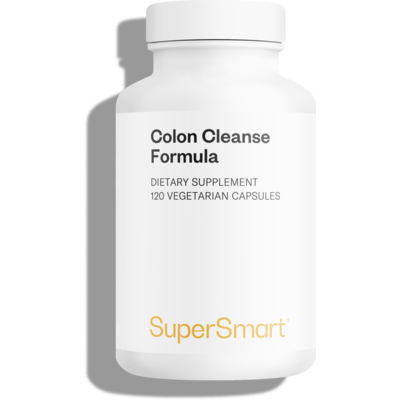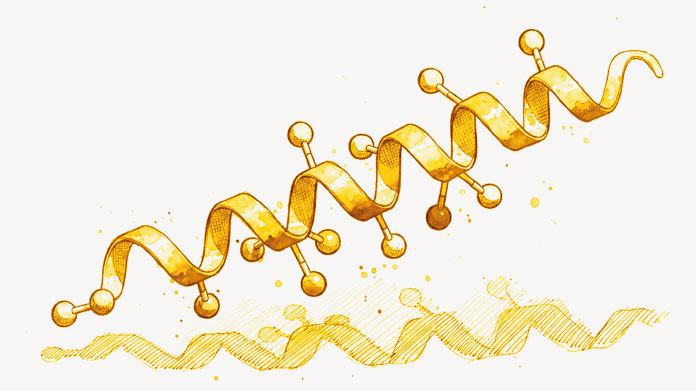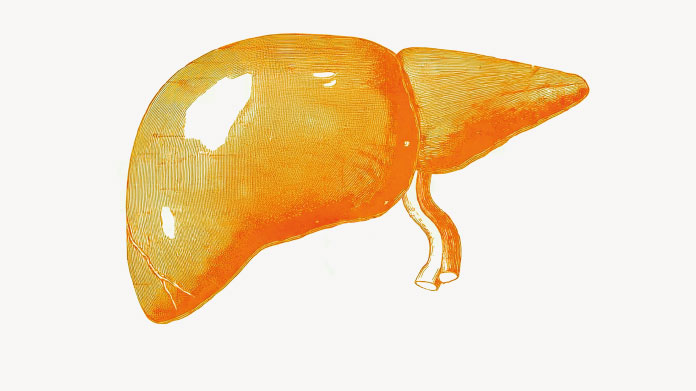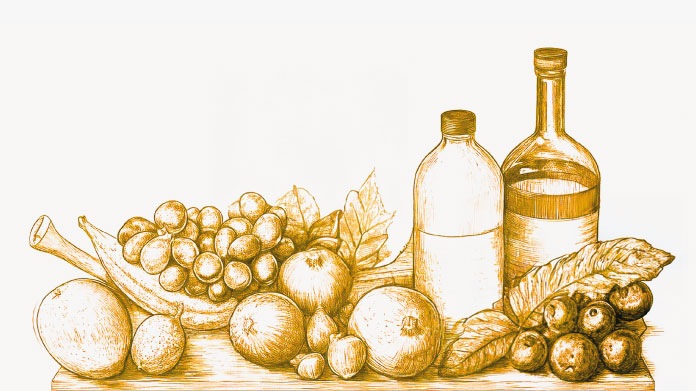Detox: how to cleanse your 5 emunctory organs
The body has 5 emunctory organs which carry out a number of metabolic functions including the elimination of toxins. Read on to find out how to drain them effectively and thus help them ‘do their job’.

The liver: the body’s waste treatment plant
The liver is one of the body’s most important organs: via the portal vein, it brings back blood loaded with nutrients: carbohydrates, fats, and amino acids, in particular (1).
Depending on the body’s needs, the liver supplies glycogen, glucose, and fatty acids, and synthesizes blood proteins (albumin, hemoglobin, globulin, etc, as well as coagulation factors).
But the liver also fulfils an important detoxification function in the body. A kind of waste treatment plant, it converts toxins into non-toxic substances: fat-soluble products are transported to the intestines and water-soluble ones to the kidneys. These two fellow emunctories then take over the job of detoxification (2).
So for overall drainage of the emunctory organs, it’s vital to take care of the liver and ensure it remains working as it should.
To this end, it’s obviously best to avoid alcohol. In fact, so toxic is ethanol to the body, that converting it into acetaldehyde and then acetate requires the entire liver to be mobilized, preventing it from processing any other toxins. What’s more, the ethanol and acetaldehyde produced by this conversion of ethanol have a toxic effect on liver cells. So to look after your liver, you first need to minimize your consumption of alcohol (3).
In a similar vein, it’s also advisable to restrict your intake of fat, sugar, and salt: the more demands you make on your liver, the less capacity it has for detoxification!
In terms of natural active ingredients, certain plants are recognized for helping to maintain a healthy liver or supporting its detox potential: these include artichoke, milk thistle and chlorella (all of which feature in the supplement Liver Support Formula, along with other natural compounds such as Picrorhiza kurroa, gingko, L-citrulline, etc.) (4-6).
Last but not least, good hydration is also a key factor in cleansing the emunctory organs, the liver being the most important, followed by the kidneys and intestines.
The kidneys: the mainstays of acid-base balance
After the liver, the kidneys constitute a second filter of the blood While they also have hormonal and enzymatic functions, they are most definitely emunctory organs and thus help to detoxify the body (7).
In fact, the kidneys filter around 190 litres of blood a day, that’s around thirty complete circulation cycles! When blood passes through the kidneys, toxins are eliminated in urine along with any excess acids from food. In this way, the kidneys enable the body’s acid-base balance to be maintained.
Finally, the kidneys produce renin, which regulates blood pressure, erythropoietin (EPO), which stimulates the bone marrow to produce red blood cells, and calcitriol, an active form of vitamin D which supports calcium absorption in the gut.
The number one rule for flushing out the kidneys is to ensure good hydration: this means drinking at least 30ml of water per kilo of bodyweight a day. So someone weighing 70kg, for example, should drink a minimum of 2.1 liters of water a day (8).
In addition, a study showed that a higher intake of vitamin B6 was associated with a lower risk of kidney stones, due to vitamin B6’s ability to reduce urinary excretion of calcium oxalates (9).
If you’re prone to kidney stones (but also calcification, tartar, etc), it’s also advisable to avoid eating too much dairy produce, spinach, sorrel, nettles, etc.
Finally, naturopaths often recommend consuming plants such as field horsetail, dandelion, noni or chanca piedra (‘stonebreaker) (which are synergistically combined with vitamin B6 and magnesium in the supplement Kidney Detox Formula) (10).
The colon, the last bastion of the digestive system
The process of digestion begins in the mouth, throughout the digestive system, nutrients from food are absorbed, converted and used in the stomach, liver, small intestine, etc. The remaining food residues then arrive in the colon in liquid form. As they move through the colon, these residues get dehydrated until they form stools which can then be excreted.
But the purpose of the colon is not just to absorb water from food waste. It contains trillions of bacteria that play a role in digestive, metabolic, immune, and neurological functions: this is the gut microbiota (11).
Amongst others, these bacteria are responsible for destroying the last toxins from food to prevent them from contaminating the body. It’s therefore crucial to look after your colon if you want to detoxify your body as a whole.
It has been widely demonstrated that nondigestible fiber is crucial for supporting the gut microbiota: whole grains, mushrooms, as well as flax and chia seeds all help to drain this emunctory organ.
It’s also important to restrict your consumption of fats, sugar, and alcohol and to avoid smoking, all of which adversely affect digestion in the gut.
Certain foods are recognized as supporting gastrointestinal health: they include senna, celery, papaya, and dandelion (all of which feature in the supplement Colon Cleanse Formula).
The skin, another important emunctory organ
The body’s first defense barrier against external attack, the skin has multiple functions: it protects the body from the cold, heat, dehydration, radiation, and chemicals (through the buffering capacity of the hydrolipid film and protective acid mantle) as well as bacteria and viruses.
As the first barrier, the skin comes under regular attack, particularly from atmospheric pollution.
That’s why it’s so important to take care of your skin by not smoking, cleansing your face daily, protecting it from external aggressors, and moisturizing it regularly with suitable creams.
And eating a healthy, balanced diet is, of course, another excellent way of maintaining healthy skin and its emunctory function.
How to detoxify the lungs
While the primary function of the lungs is to transfer oxygen from the atmosphere to the bloodstream, and vice versa for carbon dioxide, they also help to protect the body from harmful substances in the atmosphere, such as smoke, pollution, bacteria, and viruses.
Toxins like these can be trapped by mucus, a thick, viscous fluid produced by the lungs and expelled when we cough or swallow. Thus the lungs are very much emunctory organs and they contribute to the detoxification of the body.
However, between atmospheric pollutants, smoking, the cold, etc., our lungs can fill up with mucus that’s hard to shift, impairing their emunctory capacity. They therefore sometimes need a little help to maintain their respiratory function.
In this regard, maritime pine bark is known to be excellent for the respiratory tract as is turmeric, also recognized for supporting both the respiratory and immune systems (which is why both these natural substances feature in the supplement Lung Detox, formulated to cleanse the lungs) (12).
SuperSmart ADVICE
References
- THAPA, B. R. et WALIA, Anuj. Liver function tests and their interpretation. The Indian Journal of Pediatrics, 2007, vol. 74, no 7, p. 663-671.
- APTE, Udayan et KRISHNAMURTHY, Partha. Detoxification Functions of the Liver. In : Molecular pathology of liver diseases. Springer, Boston, MA, 2011. p. 147-163.
- LUNDQUIST, Frank, TYGSTRUP, Niels, WINKLER, Kjeld, et al.Ethanol metabolism and production of free acetate in the human liver. The Journal of clinical investigation, 1962, vol. 41, no 5, p. 955-961.
- MOHAFRASH, Samia Mostafa Mohamed et MOSSA, Abdel-Tawab Halim. Herbal syrup from chicory and artichoke leaves ameliorate liver damage induced by deltamethrin in weanling male rats. Environmental Science and Pollution Research, 2020, vol. 27, no 7, p. 7672-7682.
- KIM, You Jin, KWON, Sanghee, et KIM, Mi Kyung. Effect of Chlorella vulgaris intake on cadmium detoxification in rats fed cadmium. Nutrition Research and Practice, 2009, vol. 3, no 2, p. 89-94.
- SONI, Deepika et GROVER, Abhinav. “Picrosides” from Picrorhiza kurroa as potential anti-carcinogenic agents. Biomedicine & Pharmacotherapy, 2019, vol. 109, p. 1680-1687.
- FINCO, Delmar R. Kidney function. In : Clinical biochemistry of domestic animals. Academic Press, 1997. p. 441-484.
- CLARK, William F., SONTROP, Jessica M., HUANG, Shi-Han, et al.Hydration and chronic kidney disease progression: a critical review of the evidence. American journal of nephrology, 2016, vol. 43, no 4, p. 281-292.
- GERSHOFF, STANLEY N. et PRIEN, Edwin L. Effect of daily MgO and vitamin B6 administration to patients with recurring calcium oxalate kidney stones. The American Journal of Clinical Nutrition, 1967, vol. 20, no 5, p. 393-399.
- SEPTEMBER, Wolfgang Weichmann. Chanca Piedra Efficacy Study (Romania 2019)-1 in 4 STONE FREE!.
- NAVA, Gerardo M. et STAPPENBECK, Thaddeus S. Diversity of the autochthonous colonic microbiota. Gut microbes, 2011, vol. 2, no 2, p. 99-104.
- XIA, Y. F., ZHANG, J. H., XU, Z. F., et al.Pycnogenol, a compound isolated from the bark of pinus maritime mill, attenuates ventilator-induced lung injury through inhibiting NF-κB-mediated inflammatory response. International Journal of Clinical and Experimental Medicine, 2015, vol. 8, no 2, p. 1824.
Keywords
1 Days
repeat customer
recommended by my doctor. easy to create an account. Discounts and specials are appreciated. packaging and delivery is dependable. Capsules easy to digest. I've had some some capsules and tablets that are broken inside their bottles.
Kokee
6 Days
Order was shipped on time and packaged…Wonderful Jobs!
Order was shipped on time and packaged excellently.
DMHoge
12 Days
great products and prices
great products and prices
Marie
18 Days
Easy to navigate site
Easy to navigate site, had what I was searching for, good price. easy order-check out
James Tucker
24 Days
My skin is clearing up nicely!
Pretty good for my skin so far.
Christian
26 Days
The new packaging is excellent
The new packaging is excellent - finally! No more squashed boxes and torn envelopes.
GORAN
27 Days
Great Product
Great Product
Larry Garrett
31 Days
Quick shipping
Quick shipping; good price. No issues!
Mary McCarty
33 Days
Thr product is very good and is helping…
Thr product is very good and is helping me on my health. Then is always on time
LUGO Luz
35 Days
Buying was fine
Buying was fine. I had problems with the website not recognizing my login info, and had to call to get it fixed. Other than that, everything was good.
David S. Clark
36 Days
Your super maca and super ginseng are…phenomenal
Your super maca and super ginseng are phenomenal supplements that compliment each other when taking them together. Fantastic feeling of well-being and lots of mid day energy without the crash.
Keith Mason
38 Days
I have had amazing results with every…
I have had amazing results with every supplement I've purchased. I am extremely satisfied with this company
kirstin Torres
38 Days
Fine products
Fine products . They are on the leading edge of online supplements. The only issue -so far-is they sometime run out of subscription items.
Jason Argos
41 Days
The ordering process is very user…
The ordering process is very user friendly and the products always come in a timely manner.
CARTER Rhonda
42 Days
The price for Dr
The price for Dr. Pero's AC-11 is reasonable and in line with his views. (my former colleague). Keep it pure.
CAMPBELL Clayton


